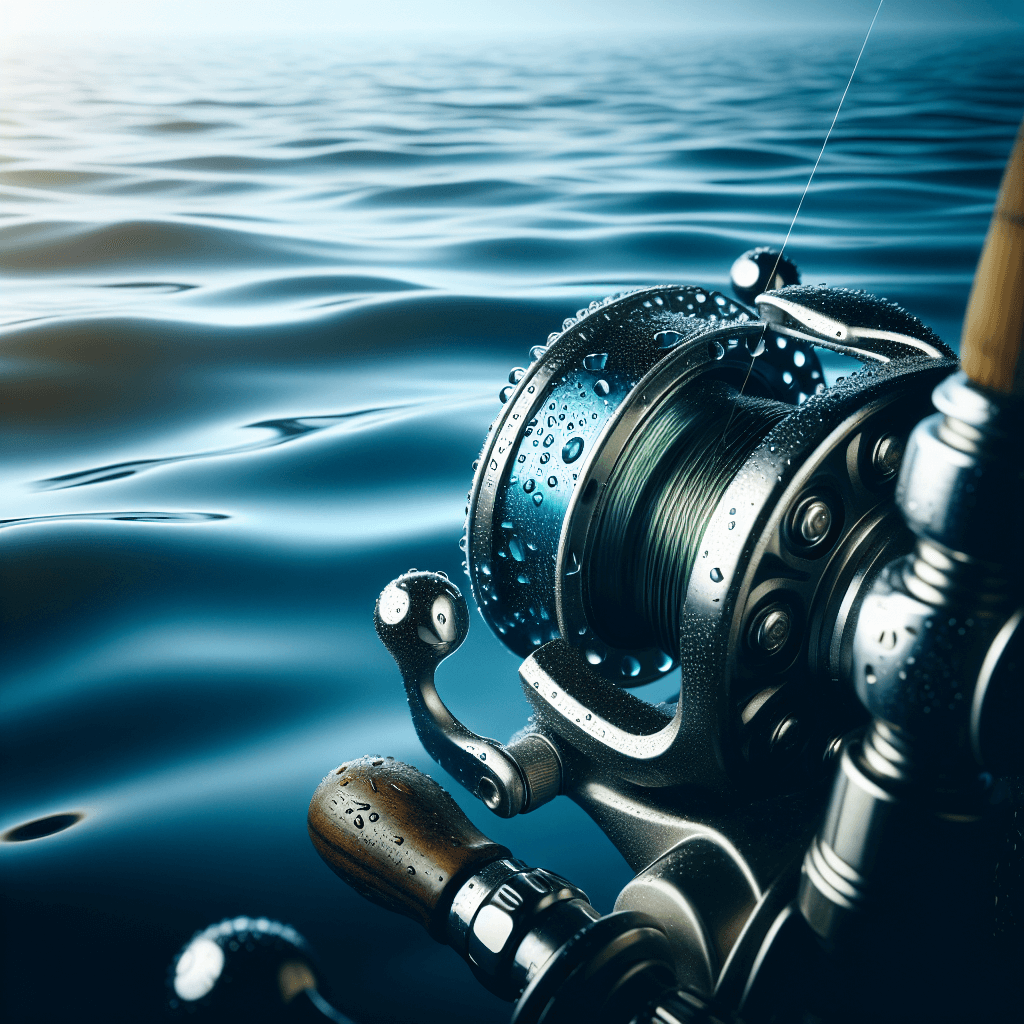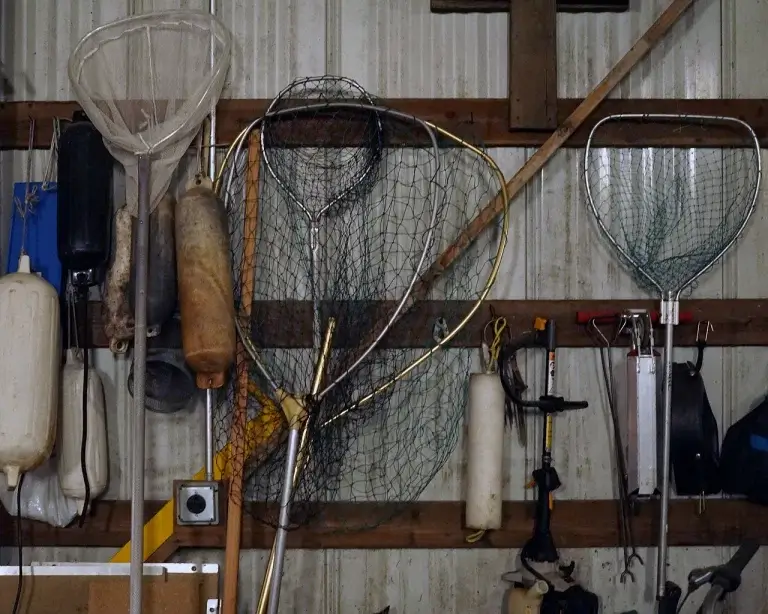Are you tired of constantly replacing fishing gear due to wear and tear? In this article, we will explore effective and easy ways to maintain and clean fishing gear, allowing you to prolong its lifespan and save money in the long run. From cleaning your fishing rod and reel to properly storing your tackle, we have got you covered. So, grab a cup of coffee and let’s dive into the world of fishing gear maintenance.
Inspecting Fishing Gear
When it comes to ways to maintain and clean fishing gear, one of the most important steps is regularly inspecting it for any signs of damage. This includes checking your fishing rods, reels, lines, hooks, lures, tackle boxes, and any other equipment you use while fishing.
Checking for Damage
Start by carefully examining each piece of your fishing gear. Look for any visible signs of wear and tear, such as cracks, dents, or fraying. Pay close attention to the rod guides, as these can become damaged over time and affect the performance of your fishing rod. Additionally, give your reels a thorough inspection, checking for any loose screws or broken components.
Repairing or Replacing Parts
If you come across any damage during your inspection, it’s important to address it promptly. Depending on the severity of the damage, you may be able to repair the equipment yourself or seek professional assistance. For example, if you notice a broken rod guide, you can replace it with a new one. However, if you discover a cracked fishing reel, it may be best to take it to a professional for repair or replacement.
Testing Reel Functionality
Before you head out for your next fishing trip, it’s essential to ensure that your reels are in proper working condition. Give them a quick test to check for smoothness, noise, and any irregularities. This can be done by reeling and releasing the line, checking the drag system, and inspecting the reel handle. If you notice any issues, such as a sticky reel drag or an unusual grinding noise, it’s crucial to address these problems before hitting the water.
Cleaning Rods and Reels
Keeping your fishing rods and reels clean is not only important for their longevity but also for optimal performance.
Removing Dirt and Debris
After each fishing trip, take the time to remove any dirt, sand, or debris from your rods and reels. Start by gently brushing off any visible particles with a soft-bristled brush or cloth. Be thorough and pay attention to crevices where dirt may accumulate.
Using Mild Detergent or Soap
To further clean your rods and reels, you can use a mild detergent or soap. Fill a bucket with warm water and add a small amount of detergent. Dip a clean cloth or sponge into the soapy water and gently scrub the surfaces of your equipment. Be cautious not to scrub too forcefully, as you may damage delicate components.
Cleaning Reel Ball Bearings
Reel ball bearings play a crucial role in the smooth operation of your fishing reel. Over time, dirt and grime can build up in these bearings, affecting their performance. To clean them, use a toothbrush or cotton swab soaked in isopropyl alcohol. Gently brush or swab the bearings, ensuring that any dirt or debris is removed. Once cleaned, apply a small drop of reel oil to lubricate the bearings and keep them in optimal condition.
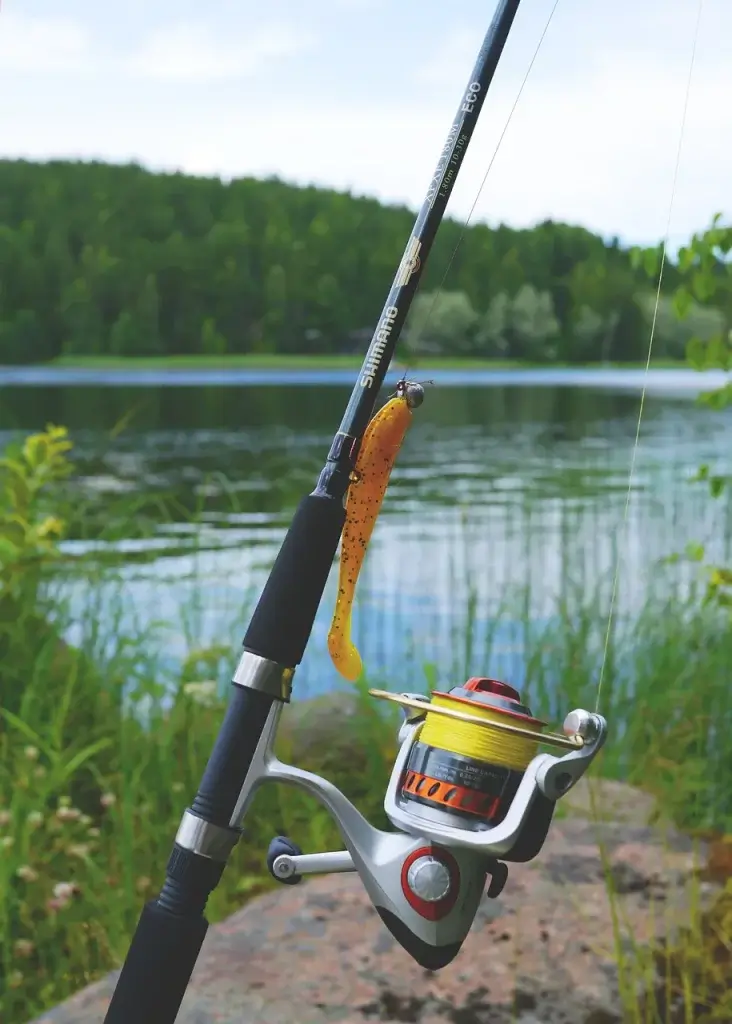
Cleaning Fishing Lines
While cleaning rods and reels is important, don’t overlook the maintenance of your fishing lines. Clean lines have better casting performance and are less likely to get tangled or damaged.
Removing Dirt and Grime
To clean your fishing lines, start by removing any dirt, grime, or algae that may have accumulated. Hold the line firmly between your hands and run it through a clean cloth or sponge soaked in warm water. Gently slide your fingers along the line in a squeezing motion to remove any debris.
Using Line Cleaner or Mild Soap
For stubborn stains or residue on your fishing lines, you can use a specialized line cleaner or a mild soap. Apply a small amount of the cleaner or soap to a cloth or sponge and run the line through it. Be sure to rinse the line thoroughly with clean water afterward to remove any residue.
Drying and Storing Properly
After cleaning your fishing lines, it’s crucial to allow them to dry completely before storing them. Lay the lines out on a clean, flat surface, ensuring they are not tangled or kinked. Once dry, loosely coil the lines and store them in a dry, cool area away from direct sunlight. Avoid storing them in a way that may cause sharp bends or kinks, as this can damage the line’s integrity.
Maintaining Reels
Regular maintenance of your fishing reels is essential for their optimal performance and longevity.
Keeping Reels Lubricated
One vital aspect of reel maintenance is lubrication. It’s important to keep the reel’s moving parts properly lubricated to reduce friction and prevent premature wear and tear. Apply a small amount of reel oil or grease to the designated points on the reel, such as the gear and handle. Refer to your reel’s manufacturer instructions for specific lubrication points.
Applying Reel Oil or Grease
To properly lubricate your fishing reels, choose a high-quality reel oil or grease that is specifically designed for fishing gear. Apply a small drop of oil to each bearing or moving part that requires lubrication. Use a fine-tipped applicator or a toothpick to ensure precise application. For gears and other areas requiring grease, apply a thin layer using a small brush or your fingertips.
Avoiding Over-Lubrication
While lubrication is essential, it’s crucial not to overdo it. Excessive lubrication can attract dirt and debris, leading to poor reel performance. Use only the recommended amount of reel oil or grease, making sure to wipe away any excess. Proper lubrication will ensure smooth operation while avoiding excessive buildup that can hinder the reel’s functionality.
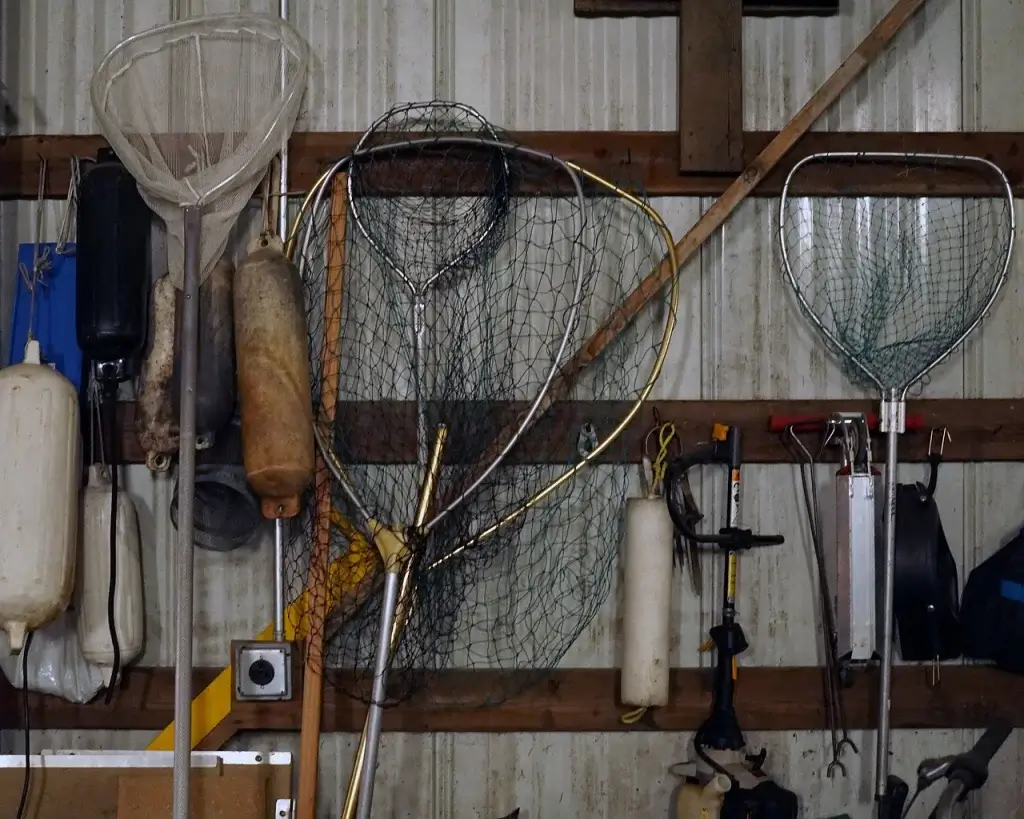
Maintaining Rods
Taking care of your fishing rods is crucial for their performance and durability.
Inspecting Rod Guides
Regularly inspecting the rod guides is essential to ensure optimal fishing rod performance. Check for any signs of wear, such as cracks or grooves in the guides. Damaged guides can cause line breakage and impact casting accuracy. If you notice any issues, promptly replace the damaged guides.
Repairing or Replacing Guides
If you find damaged rod guides during your inspection, don’t hesitate to take action. Replace any broken or worn-out guides to maintain the integrity of your fishing rod. You can find replacement guides at fishing supply stores or seek assistance from a professional rod builder for more complex repairs.
Storing Rods Properly
Proper storage is crucial to protect your fishing rods from damage. Avoid leaning them against surfaces or leaving them lying on the ground where they may be stepped on or accidentally knocked over. Invest in rod straps or socks designed to hold the rods securely together and protect them from scratches or other potential harm. Store your rods in a dry, cool area away from direct sunlight to prevent warping or other damage.
Cleaning and Maintaining Hooks
Hooks are an essential part of your fishing gear, and keeping them clean and sharp is imperative for successful hooksets and landing fish.
Removing Rust and Corrosion
Inspect your hooks for any signs of rust or corrosion. If you find any, it’s crucial to remove it promptly. Using a soft bristle brush, gently scrub the affected areas with a mixture of warm water and baking soda. Rinse the hooks thoroughly and dry them completely to prevent further corrosion.
Sharpening Hooks
Sharp hooks are vital for hooking and landing fish effectively. Regularly check the sharpness of your hooks using a hook sharpening tool or sharpening stone. Carefully run the tool along the edges of the hook point to restore its sharpness. Remember to sharpen only the tip of the hook and avoid altering the curvature or shape.
Checking Hook Points
Before every fishing trip, examine the hook points closely. Look for any signs of dullness, bending, or damage. If you notice any issues, either sharpen or replace the hooks to ensure maximum effectiveness. A sharp and intact hook point improves your chances of a successful hookset and reduces the risk of losing fish.
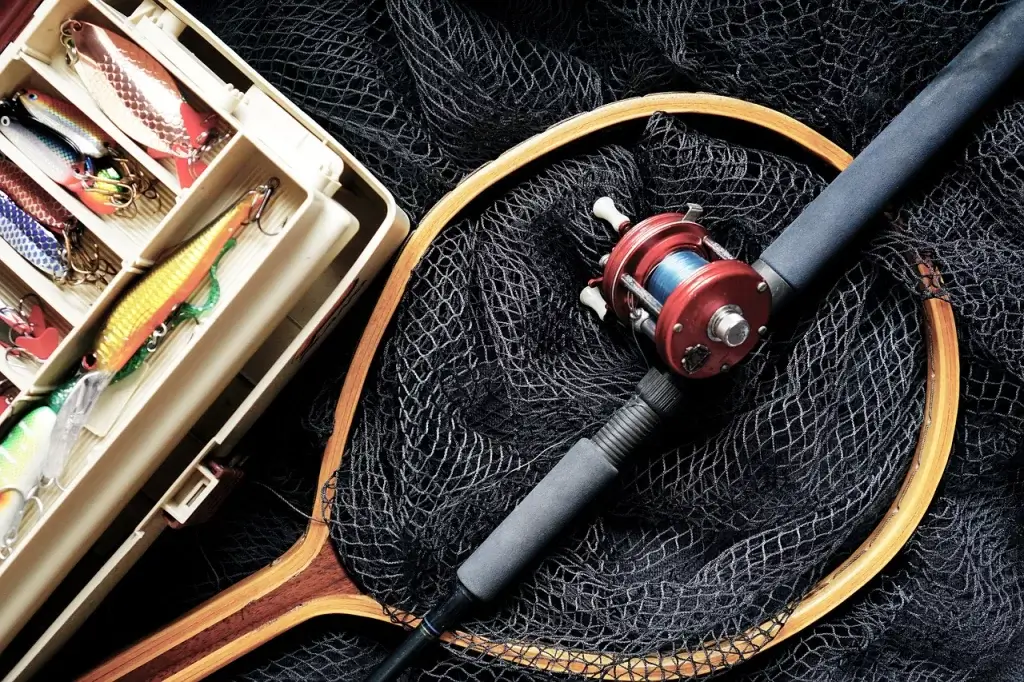
Cleaning and Maintaining Lures
Properly caring for your fishing lures will not only extend their lifespan but also maximize their attractiveness to fish.
Removing Dirt and Residue
After each fishing trip, take the time to clean your lures thoroughly. Begin by removing any dirt, moss, or debris from their surfaces. Use a soft brush or cloth to gently scrub away any particles. Pay close attention to any crevices or hooks where dirt may accumulate.
Checking Hooks and Split Rings
Inspect the hooks and split rings on your lures for any signs of rust, corrosion, or damage. If necessary, clean them using warm water and a mild detergent or vinegar solution. Rinse them thoroughly and dry them completely before reattaching them to the lure. Properly maintaining the hooks and split rings will ensure their reliability when hooking fish.
Storing Lures Properly
To prevent damage or tangling, it’s important to store your fishing lures properly. Consider using lure-specific storage containers that have individual compartments to keep each lure organized and protected. Alternatively, you can use tackle boxes with adjustable dividers. Keep your lures in a cool, dry place away from direct sunlight, as excessive heat or moisture can degrade their quality.
Cleaning and Maintaining Tackle Boxes
While tackle boxes may not be the focus of your fishing gear, they still require regular cleaning and maintenance to keep everything organized and accessible.
Emptying and Organizing Contents
Start by emptying your tackle box completely. Sort through the contents and remove any items that are damaged, expired, or no longer needed. Organize the remaining items according to their type, size, or purpose, making it easier to locate specific tackle while on the water.
Cleaning Box Interiors
Once your tackle box is empty, take the time to clean the interiors. Use a damp cloth or sponge to wipe away any dirt, grime, or residue that may have accumulated. For stubborn stains or odor, you can use a mild detergent or vinegar solution. Rinse the box thoroughly and allow it to dry completely before placing your tackle back inside.
Checking Latch and Hinge Functionality
The latch and hinge of your tackle box are crucial components. Regularly inspect them to ensure they are functioning correctly. If you find any issues, such as a loose latch or a sticky hinge, address them promptly. Lubricate the latch and hinge with a small amount of silicone-based lubricant to keep them in optimal condition and prevent corrosion.
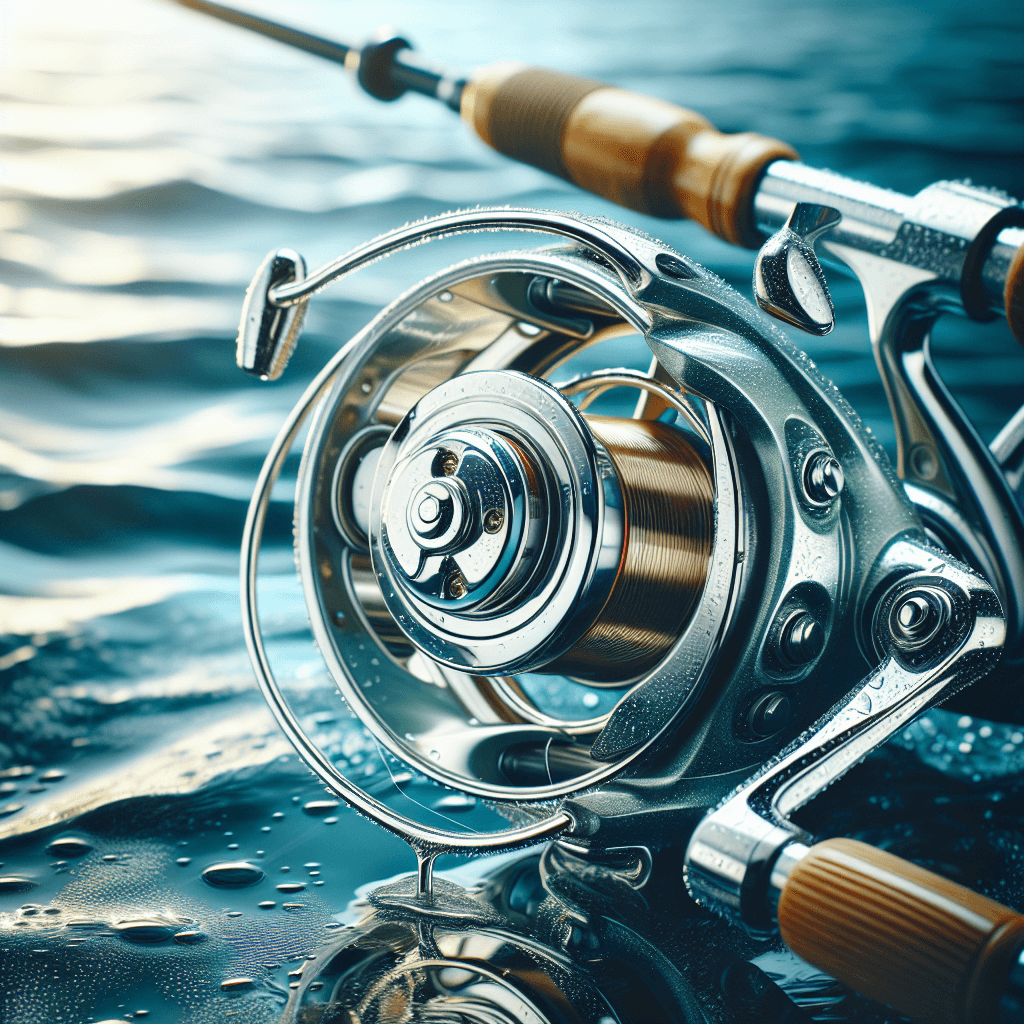
Properly Storing Fishing Gear
Proper storage of your fishing gear is essential to protect it from damage and prolong its lifespan.
Drying Gear Before Storage
Before putting your fishing gear away, ensure that it is thoroughly dry. Moisture left on rods, reels, lines, hooks, or lures can lead to rust, corrosion, or other damage. Wipe down your equipment using a clean, dry cloth or towel. Allow everything to air dry in a well-ventilated area before storing.
Using Rod Straps or Socks
To prevent your fishing rods from tangling or getting damaged during storage, consider using rod straps or socks. These protective covers are designed to hold the rods securely together, shielding them from scratches and potential impact. Utilize these accessories to ensure your rods remain in optimal condition until your next fishing adventure.
Protecting Reels
When storing your fishing reels, it’s essential to protect them from dust, moisture, and potential damage. Consider using reel covers or neoprene reel pouches to shield your reels. These covers provide an extra layer of protection and help maintain the integrity of the reels over time. Always store reels in an upright position to prevent stress on the internal components, such as the gears and bearings.
Regular Maintenance Schedule
Creating a regular maintenance routine for your fishing gear will help you stay organized and ensure that everything is well-maintained.
Creating a Routine to Maintain and Clean Fishing Gear
Establishing a maintenance routine is key to keeping your fishing gear in top shape. Determine a suitable interval for maintenance based on how frequently you fish. It could be after every fishing trip, once a month, or at the beginning and end of each fishing season. Having a routine in place will make it easier to remember and prioritize the necessary tasks.
Performing Routine Inspections
As part of your maintenance routine, perform regular inspections of your fishing gear. Follow the guidelines outlined earlier in this article to thoroughly inspect and address any signs of damage, wear and tear, or other issues. By catching problems early on, you can prevent major damage and extend the lifespan of your equipment.
Maintaining a Log of Maintenance
Consider keeping a log or record of your maintenance activities. Note down the date, type of maintenance performed, and any specific issues addressed for each piece of fishing gear. This log can help you track the frequency of maintenance, identify patterns, and serve as a reference for future maintenance needs. It will also be beneficial when discussing maintenance or repairs with professionals.
By following these guidelines and incorporating these maintenance practices into your fishing routine, you can keep your fishing gear in excellent condition for years to come. Regular inspections, cleaning, proper storage, and occasional repairs or replacements will help prolong the lifespan of your equipment and ensure optimal performance on your fishing adventures. Happy fishing!
